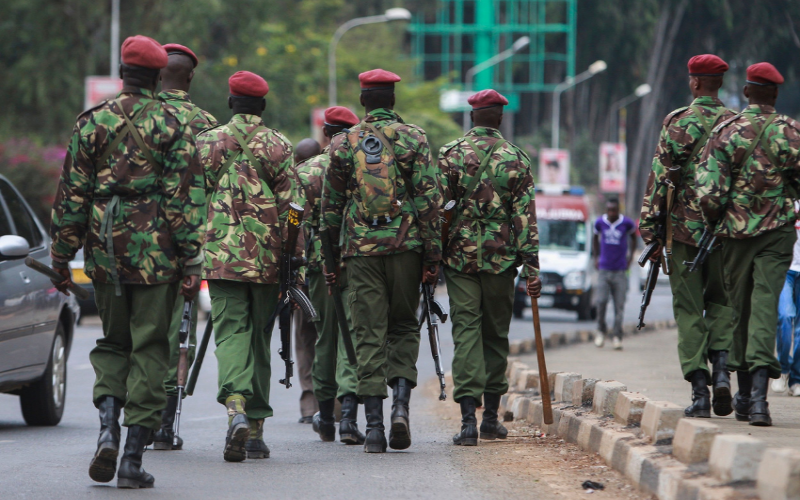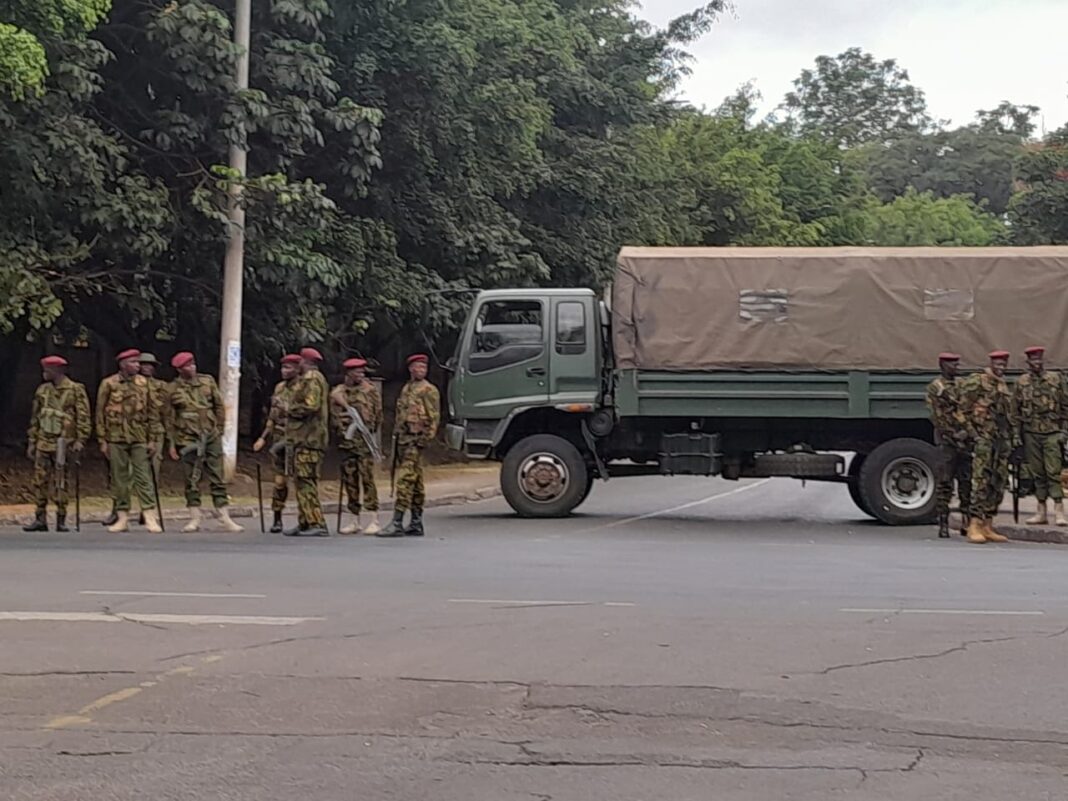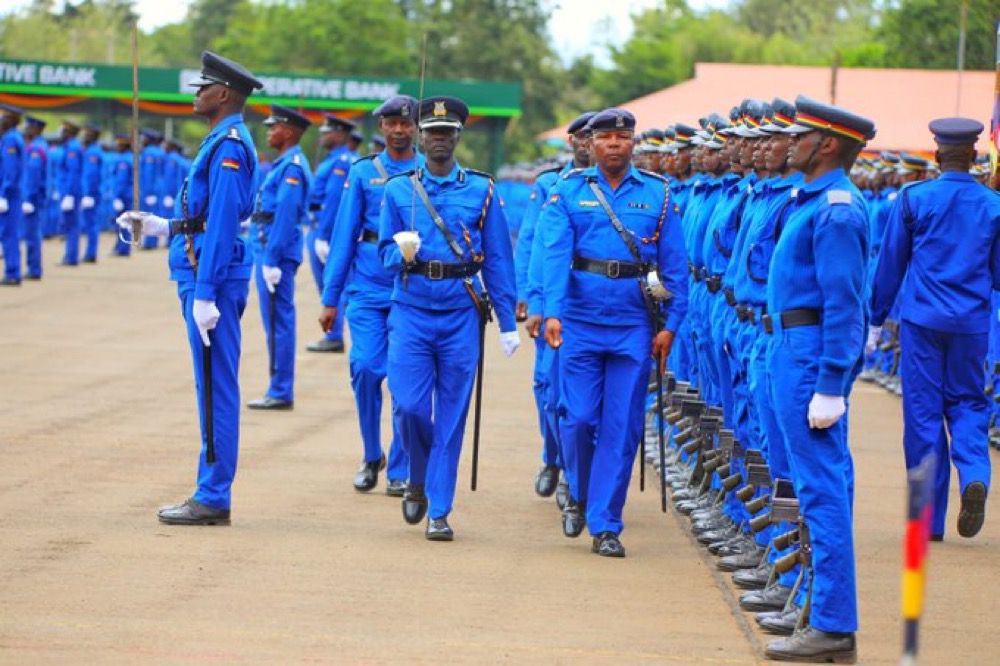A Nairobi court has ruled that three General Service Unit (GSU) officers will face murder charges for the deaths of four protesters killed during demonstrations at Masimba Trading Centre on the Nairobi-Mombasa Highway in June 2022.
The ruling, delivered on November 12, stated that ballistic and post-mortem evidence proved the victims died from gunshot wounds. The case marks a major step in the pursuit of police accountability over the deadly handling of public protests.

Court Finds Strong Evidence Against Three GSU Officers
The court determined that the evidence presented by the Independent Policing Oversight Authority (IPOA) was sufficient to prosecute the three officers. The four victims—Duncan Kanari, Letemir Topoika, Dennis Matheka, and Ntidu Tereu—were among a group of residents protesting against rising cases of human-wildlife conflict in Kajiado County.
The peaceful demonstration on June 2, 2022, turned deadly when officers allegedly opened fire on the crowd near Masimba Trading Centre. Six more protesters were injured in the incident. Photos from the day showed angry residents blocking the highway with stones and burning tires to demand government intervention over recurring elephant attacks in the area.
The court concluded that ballistic reports matched the officers’ firearms to the bullets retrieved from the victims’ bodies. Post-mortem results further confirmed that the deaths were caused by direct gunfire, not stray bullets or ricochets.
Following the ruling, the court recommended that the case file be forwarded to the Office of the Director of Public Prosecutions (ODPP) to officially charge the officers with murder.
IPOA Investigation Exposes Serious Misconduct
The case was investigated by IPOA on its own motion under Section 6 of the IPOA Act, which mandates the authority to probe police misconduct involving death or serious injury. IPOA investigators visited the scene, interviewed witnesses, and conducted forensic analysis that revealed the use of live ammunition against unarmed civilians.
In addition to murder, the three GSU officers face multiple related charges including excessive use of force, conspiracy to defeat justice, conspiracy to commit murder, and being accessories after the fact. The findings suggest that attempts were made to cover up the killings and mislead investigators.
Initially, nine officers were arrested following the shootings. However, only three were linked directly to the deaths through ballistic evidence. IPOA recommended that those three be held personally accountable for the fatalities.
The authority has maintained that this case is a critical reminder that police officers are not above the law and must act within the boundaries of the Constitution, which guarantees the right to life and peaceful assembly.
Officers’ Defence Rejected by the Court
Court documents reveal that the accused officers, who were attached to the GSU unit stationed along the Nairobi-Mombasa Highway, denied responsibility for the killings. They claimed that they were caught in a chaotic situation after protesters barricaded the road and threw stones.
According to their account, they fired warning shots into the air to disperse the crowd after several officers and residents sustained injuries. They further argued that they were unfairly targeted and arrested without being informed of the reasons.
The officers were summoned to IPOA headquarters on November 4, 2022, where their fingerprints were taken. Later, they were detained at Kibra Police Station. They protested their detention, arguing that they had acted in self-defence and had been outnumbered by the mob.
Their plea, however, was dismissed by the court, which ruled that their explanation did not align with the forensic and eyewitness evidence. The court emphasized that the officers’ weapons were used in a manner inconsistent with police operational guidelines.
By rejecting their claim, the court paved the way for the three officers to be prosecuted for murder, stating that the right to life cannot be compromised under the guise of maintaining public order.
A Milestone for Police Accountability
The ruling has been hailed by human rights advocates as a milestone in the fight against police brutality in Kenya. IPOA’s swift investigation and the court’s firm stance reinforce the principle that law enforcement officers must answer for their actions when excessive force leads to loss of life.
If convicted, the three GSU officers could face life imprisonment under Kenyan law. The ODPP is now expected to file formal charges and proceed with the trial in the coming weeks.
This case underscores the growing demand for justice in Kenya, where communities have long complained about unpunished police killings. The court’s decision sends a strong message that impunity will no longer be tolerated—even within elite units like the GSU.


